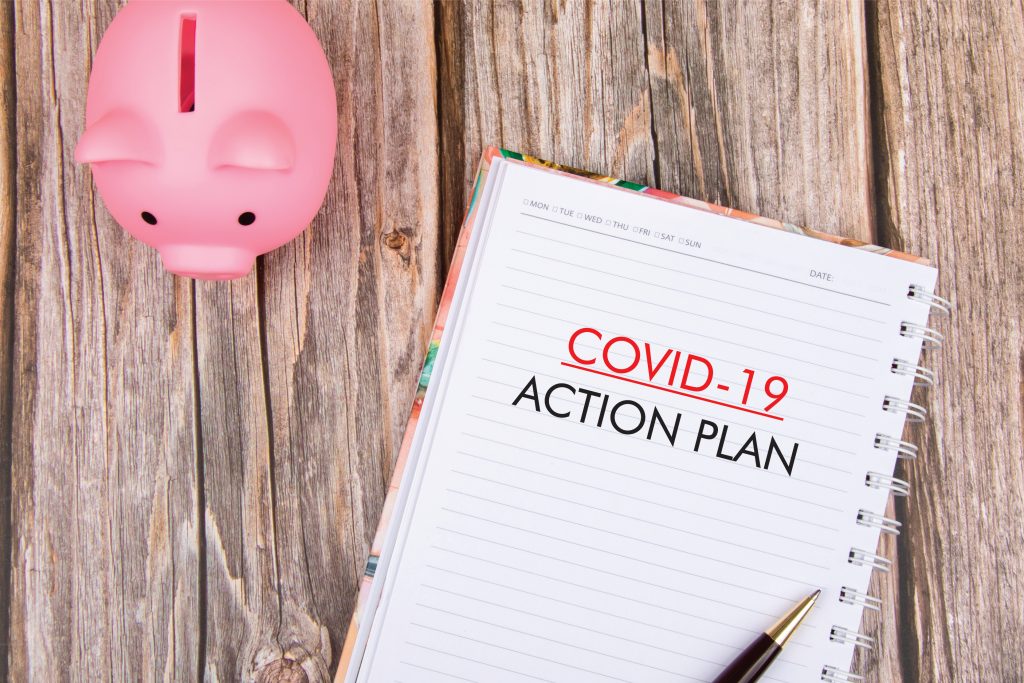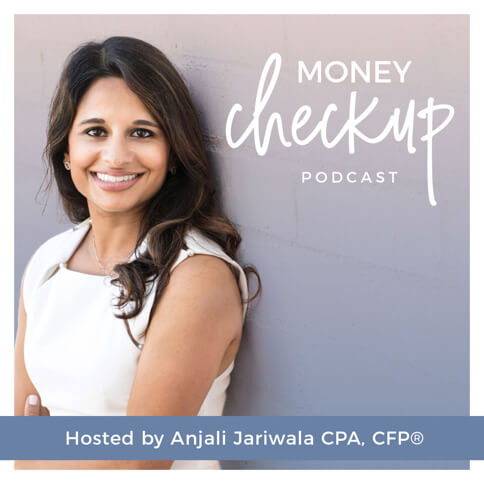The COVID-19 pandemic has changed families’ financial lives across the world. Millions of Americans have been furloughed or laid off. Business owners have seen sudden, shocking drops in revenue. And healthcare professionals are fighting the pandemic day in and day out, without much time to think about what comes next.
When things are out of our control, I often find that the most helpful thing I can do is to plan for the things I can control — including my personal finances.
Planning today isn’t that different from planning three months ago. You can still begin by reviewing your cash flow, debt and investments; then, make sure your assets are protected and your estate plan is in place. Build up your emergency fund and take advantage of unemployment benefits and other relief. Make a contingency plan so you’re ready in case things take a turn for the worse. And to whatever extent you can, stay the course with your investment strategy.
A Quick Checkup For Your Financial Health
Before you make any major changes, review your finances as they are, taking into account any changes that you’ve made (or had to make) as a result of the COVID-19 pandemic.
Cash Flow: Review your last month of income and spending to see how your cash flow picture has changed. If you were furloughed or laid off, you have probably adjusted your spending as a result. Your spending at restaurants and on childcare may have changed as well. Do a quick cash flow analysis to understand your current state.
Debt: Review the types of debt you have, including any debt you’ve taken on in the last two months. If you’ve taken out a loan to sustain your business or your household during the pandemic, make sure you adjust your debt-to-income ratio accordingly.
Investments: If you can, stick with your existing investment strategy. Allocate your assets in a way that makes sense for your risk tolerance and your anticipated timeline for retirement. If you did not rebalance your investments when the markets took a downturn in March, now is a great time to do so.
Risk Management and Asset Protection: Revisit your insurance policies to make sure you’re covered from a liability perspective, including home insurance, auto insurance, and a personal umbrella policy. Many households carry an umbrella policy worth $1 million; Money Checkup guest Ike Devji often recommends $2 million in coverage because the costs of medical care and property replacement are rising so fast.
Estate Planning: At the very least, get powers of attorney for healthcare (also known as an advance directive) and property. These documents will give someone else the power to make decisions about your medical care or your property and financial assets if you become incapacitated during your life. Encourage your parents and adult children to put these in place as well. Additionally, if you don’t yet have a will or living trust, talk to an attorney about creating those documents.
Create A Cash Flow System That Works For COVID-19
“Cash is king” is never more true than in times of uncertainty. When we don’t know what the future holds — financially or otherwise — having cash on hand offers flexibility and security.
To analyze your cash flow in the COVID-19 world, start with your income. Include all sources: Income you receive from your job, consulting work, your business, or otherwise.
If you’ve recently lost work, make sure to apply for unemployment benefits from your state. Benefits will be retroactive to when your unemployment began, and while compensation amounts vary from state to state, the federal CARES Act provides an additional $600 per week on top of state benefits. This federal money is available to independent contractors for as long as 39 weeks.
If you’re a business owner, the CARES Act offers loans to help you continue making payments on fixed debt, payroll and other bills. Although money for some CARES Act programs ran out within days, a deal has been reached to provide more funding for specific programs, including the Paycheck Protection Program. Talk to your bank as soon as possible to submit an application.
Additionally, make sure to take advantage of CARES Act provisions that allow you to delay student loan payments at 0% interest. Not all student loans are eligible, so call your loan servicer to see if you are eligible or not.
Then, turn to your emergency fund. Normally, financial advisors encourage clients to carry three to six months of expenses in cash savings, but in a time of uncertainty, you may feel safer with six to 12 months of expenses. If the pandemic has reduced your day-to-day spending, begin adding the savings to your emergency fund.
If, in the coming months, you deplete your emergency fund, you can turn to your other assets, such as your retirement accounts. The CARES Act also allows you to take penalty-free distributions of up to $100,000 from IRAs, employer-sponsored retirement plans, or a combination of both if you’ve been impacted by COVID-19. These distributions are free from the early withdrawal penalty and mandatory withholding rules, although you will have to pay income tax on them.
If you need to borrow money, consider a home equity line of credit or a line of credit for your business — these loans generally carry much lower interest rates than credit cards do.
As a last resort, you can sell out of your illiquid assets, such as doing a cash-out refinance of your mortgage. Remember that the tax law changes of 2018 capped the mortgage interest tax deduction at $750,000, so if you do a cash-out refinance and your mortgage is more than that, it will be subject to the new cap.
Investing In The COVID-19 Environment
If your income is stable, stick with your tried-and-true investment strategy. Continue to save for retirement and other financial goals. Pick an asset allocation that aligns with your risk tolerance and how soon you expect to need the money, and diversify your assets so you smooth out your returns and reduce some of the downside risk.
If you’re worried about investing too much right now and losing it if the markets decline, consider separating your money into a few separate buckets. Work with your financial advisor to invest some of it now and some later in the market cycle, as you see fit.
To whatever extent you can, try to separate your investing strategy from your emotions. It’s a scary time for just about everything, including financial markets. But historically speaking, the markets have always recovered from downturns — and often those who can weather the storm are best positioned to succeed when it ends.
Trace Tisler, CFP®, reminded me on a recent episode of Money Checkup: “Investing isn’t a game of chance. Investing is a systematic process based on the economy, on prudent things that you can do that have been proven over time by academics, by history, by all types of studies. Investing is a process. It’s not a game. It gets hard to differentiate those in a time when it feels a little bit like gambling… but the process of investing incorporates that possibility, likelihood, and almost certainty, that you will take one on the chin from time to time.”
If you’re not sure what to do about your investments, it’s better to do nothing than to completely sell out of your portfolio. If you feel like you must do something, do it only with a small fraction of your portfolio.
Whether you want to stay the course or investigate a change of direction, financial advisors are here to walk with you. Reach out today if you want to start a conversation with an advisor.
I talked about planning in times of uncertainty in even more detail last week on my podcast, Money Checkup. Listen here, or check it out below!




